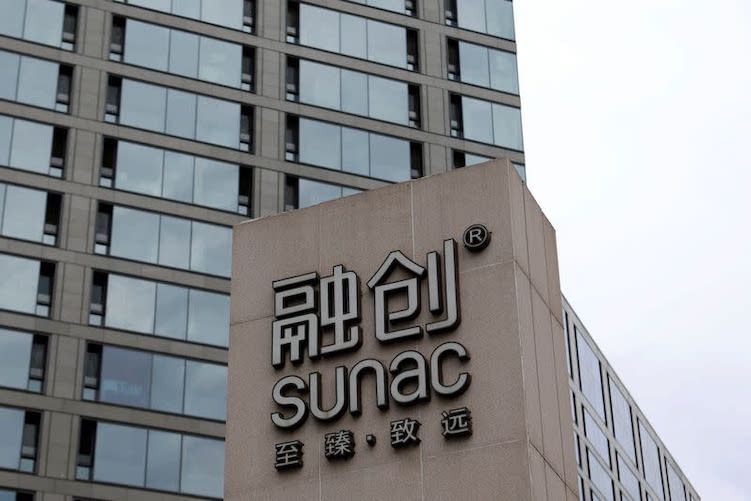The shares of many Chinese building developers jumped on Monday, amid positive news on several fronts, plus speculation more stimulus measures will be unveiled this week.
Analysts said the rally appeared to be driven by speculation the Communist Party Central Committee’s Political Bureau will meet in late April to discuss loosening property policies. There is also talk of injecting stimulus to clear inventory, boost sales and lift home purchase restrictions.
Hong Kong’s Hang Seng Mainland Properties Index jumped 4.3% in the morning session, but slipped in later trading, while mainland China’s CSI 300 Real Estate Index surged 6.9% – both to near four-month highs.
ALSO SEE: China Warns US Not to Implement Taiwan Aid, TikTok Sale
Private property developers such as Sunac China, and Shimao Group (which has defaulted), KWG Group, Zhenro Properties, Fantasia and Kaisa Group, all gained more than 20%.
In related news, a Hong Kong court on Monday adjourned a hearing to liquidate Kaisa to May 27, as the Shenzhen-based developer said it aims to iron out restructuring terms in the coming four weeks.
State-backed China Vanke‘s shares in Hong Kong bounced 17%, while its shares in Shenzhen rose 10%.
Investors have been dumping Vanke’s shares and bonds in recent months on liquidity concerns. The company is due to announce its first quarter results on Monday.
Monday’s rally followed a 14% rise in the Hong Kong mainland properties sub-index last week, which was driven in part by China’s securities regulator’s plans to support the financial hub’s capital market development.
However, analysts expect the current rally to be short-lived.
“For now, we haven’t seen any sign of improvement in fundamentals. Property sales are still dropping,” said Mark Dong, co-founder and general manager of Minority Asset Management in Hong Kong. His company has been avoiding property stocks.
“There certainly is hope that the central and local governments will introduce more supportive measures. But apart from more interest rate cuts, other measures, like capital support from local governments will be quite hard to be implemented, as we know they are facing restrained resources themselves.”
New home prices in China fell at their fastest pace in more than eight years in March as developers’ debt woes dragged on demand and the outlook.
Chinese authorities have been ramping up measures to prop up the troubled sector, including relaxing home purchase curbs, supporting urban village renovation, and pushing banks to quicken loan approvals to cash-strapped developers.
But analysts say many of these policies are piecemeal in nature or have only limited short-term impact. JPMorgan said in a note that a sustainable rally in the sector would require a meaningful sales recovery and stronger policy responses.
CIFI bond rejig
Shares of CIFI Holdings also shot up 17%, after the developer said it had reached an agreement with bondholders on an offshore debt restructuring plan.
A key group of bondholders has agreed “in principle” on the key terms of a proposal offered by CIFI, the company said in a filing to the Hong Kong stock exchange. The group holds or controls approximately 43% in aggregate of the principal amount of CIFI’s offshore notes and bonds.
Shanghai-based CIFI defaulted on payments tied to a convertible bond in October, 2022, and has been working with its creditors for repayment solutions since.
CIFI’s proposal comes at a time when many Chinese developers are still struggling with rising debt as property sales in China remain sluggish. A growing number have defaulted on repayment obligations since the debt crisis began in mid-2021, and a handful have been ordered by the courts to be liquidated.
Under the debt restructuring proposal, creditors will have the option to receive cash, with at least an 85% haircut, or a mixture of new notes, new loans, and the company’s shares, with smaller or no haircuts, while CIFI intends to cut its offshore debt by around $3.3 billion to $4 billion.
CIFI said it was still in talks with creditors, including the key bondholder group and a separate group of lenders. The company has not yet entered into any legally binding agreement.
It said 68 of the company’s projects had been shortlisted under the “whitelist” scheme initiated by the Chinese government to inject liquidity into the crisis-hit sector to help developers finish the construction of property projects.
- Reuters with additional editing by Jim Pollard
NOTE: Further text was added to this report on April 29, 2024.
























